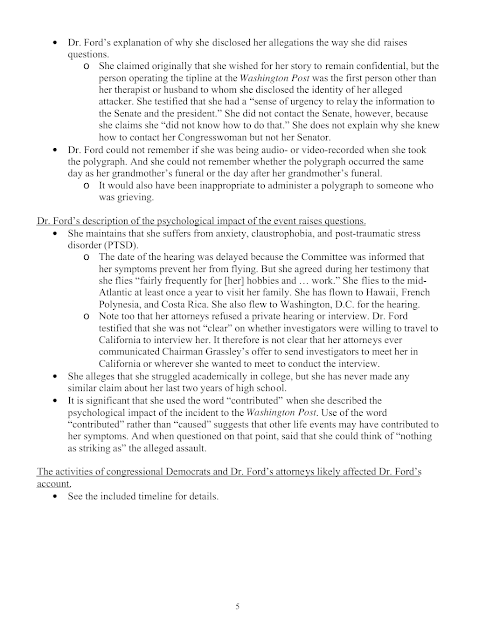The image below shows my response to Lieu's tweet that he would "like to regulate Fox News", but that he cannot because of the First Amendment to the U.S. Constitution, and that is, to quote Lieu again, "a good thing in the long run."
This is a confession of a sociopathic impulse, and a very weak defense of the First Amendment's protection of free speech. The implication of Lieu's comment is that he has the sensibilities to properly censor popular news organizations, but that others should not have that power, and so it is "a good thing in the long run" that even Lieu himself not be granted that
power —
https://twitter.com/MaxAutonomous/status/1073124266495827968
I received a response to my tweet via e-mail stating that Ted Lieu's tweet "is fine", because in the end Lieu did state that it is good that he cannot act on his impulse to censor others because of the First Amendment —
"... but this tweet is fine. He is saying it is a good thing we have the first amendment. Yes, his admitted urge to censor is strange, but he seems to recognize it is good that the government doing so is illegal."The writer then used as a kind of analogous example an opponent of rent control living in a rent controlled apartment, when they would prefer that government initiations of force like rent control be illegal —
" ... That [rent control] should be illegal ... If it were illegal, I could honestly say 'I'd rent that apartment from you at a forcibly under market rate, but that is illegal. I am glad it is, because it's better in the long run.' Right?"This seems reasonable, since as an individual citizen you cannot control what government does, and being a renter by itself is not a participation in the implementation of rent control. Provided an individual does nothing to help institute or perpetuate government coercion, they share no guilt in it.
But there is an important difference between this example and the impulse to censor speech — that someone rents in a city with an immoral rent control law, is not the same as having an impulse to implement rent control, as Lieu stated he had an impulse to implement censorship to "regulate" Fox News.
That is, there is a difference between saying that I would live in a rent controlled city, if it were the most convenient location, while still opposing rent control, and saying I would like to live in a city whose rents I could control, but I cannot because it is illegal, and I know that is ultimately a good thing in the long run.
The difference is having an impulse to do something that can only do harm, and being grateful not because you cannot act on your impulse, but because some others cannot act on theirs, versus not having the impulse at all, because you know it can only do harm.
This is exactly why I responded to Lieu the way I did — way too many people think their sociopathic tendencies have a reasonable quality and would be beneficial if only they alone could act on them, but are perhaps just not "a good thing in the long run" if all others had the chance to get the same power, and so they have some kind of enlightenment for forgoing their desire to subjugate others.
No one will ever convince me that the impulse to initiate force against others "is fine".
And, regarding their appeal, there is another critical difference between rent control and government censorship that should be highlighted — despite both being destructive policies that should be illegal.
Many people have studied rent control, and so they know the economics and the harm that it causes — hence the writer's comment that it should be illegal. This old joke from economics comes to mind: "Short of aerial bombardment, rent control is the surest way to destroy a city." No disagreement there.
https://www.adamsmith.org/blog/planning-transport/only-bombing-would-be-worse-than-rent-control
https://www.forbes.com/sites/timworstall/2016/06/12/silicon-valley-decides-to-bomb-its-own-housing-market-...
http://archive.is/0z5zr
https://www.theatlantic.com/business/archive/2009/10/rethinking-rent-control/29072/
https://web.archive.org/.../https://www.theatlantic.com/business/archive/2009/10/rethinking-rent-control/29072/
But what makes rent control appeal to so many people? Not much. It requires the initiation of force, and that alone is the justification for opposing it. There are also no good economic arguments to defend price controls in general, so anyone who studies price controls at all (including rent control) will learn they exacerbate problems, rather than solve them. Obviously, scarcity and poverty cannot be reduced by fixing prices. See Henry Hazlitt's 'Economics In One Lesson' for a discussion of the destructive consequences of price fixing —
https://fee.org/resources/economics-in-one-lesson/#calibre_link-27
So what is at the root of the popular appeal of a destructive subsidy like rent control? Dishonesty.
People simply want something they cannot afford, and so they band together with other people who are willing to be dishonest, to attempt to use government to make other people subsidize them — while they ignore the force employed on their behalf by government, as well as the destructive consequences that follow as a result of pushing the cost of what they are using onto others.
This dishonesty is what gives rise to bizarre, nonsensical rationalizations, such as: "it's part of the social contract", or "you have to give back to society", or "<service X> is a human right", and of course, "you didn't build that". None of these simpleminded comments can withstand any scrutiny, and they are all employed in an attempt to avoid identifying the forced subsidy that lower income taxpayers receive under progressive taxation, as if others must subsidize them by right.
But at least forcing someone else to pay has that thin veneer of appeal: "cheap stuff for me is good".
But what gives Ted Lieu's impulse to censor a veneer of plausibility or respectability?
Notice that in Lieu's tweet he mentioned Fox News, and not Antifa, or some neo-Nazi group, or any other similar group actively promoting violence. This aspect of Lieu's comment is especially perversely fascinating — given the recent repeated acts of so-called 'political' violence, which are legitimately illegal, it is interesting that Ted Lieu expressed an impulse to silence a news organization he does not like. Pity Lieu's impulses are not more focused on controlling criminals who are committing actual acts of violence.
Can anyone describe even a supposed simpleminded benefit that would come from Ted Lieu's hypothetical ability to censor a popular news organization? Why not censor MSNBC, for example? Are they not just as biased as Fox News?
It would be difficult to make the case that other news organizations are not at least as biased as Fox News, but singling out one news organization as Lieu did, as if only that organization stands out as being biased above all others, is only a confession of bias. That Lieu would mention a single news organization, as if it alone deserved to be "regulated", is just another indication of his corruption.
But how could just bias, even if true (rather than calls for violence), give rise to an impulse to censor? Does Ted Lieu not see his own bias?
A craven hypocrite demanding rent control has a slight moral superiority when compared to Lieu — at least the rent control advocate demands theft for their own direct benefit, while Lieu has an openly admitted impulse to control what others can experience, as if his sensibilities about what anyone should even be permitted to think about are somehow superior. Power for the sake of power.
Whatever one comes to believe about Ted Lieu's motivations and his impulse to censor, he certainly cannot be described as attempting to get at the truth.
In that regard, consider this quote from John Stuart Mill's 'On Liberty', 'Chapter II: Of the Liberty of Thought and Discussion', regarding the critical role of considering adversaries in honestly forming one's opinions (emphasis added) —
https://archive.org/details/in.ernet.dli.2015.222998/page/n31/mode/2up
http://www.gutenberg.org/cache/epub/34901/pg34901.txt
I cannot think of a reasonable way to defend what Lieu wrote, especially given his qualification that others should not have the power to censor. Ted Lieu's statement that the First Amendment preventing him from regulating Fox News is "a good thing in the long run" is a half-truth, at best. The First Amendment's restriction is not just good in the long run, even if it happens to restrict some good people along the way — it is a requirement of civilization at all times. Ted Lieu's statement regarding the First Amendment is corruption, because it implies something that is false — that Ted Lieu, or some other minority of supposed 'good people', could wield the power to censor honestly.
The point of the First Amendment is not:
We live in a sick culture, and Lieu's polite, mealy-mouthed 'defense' of the First Amendment is just one indicator of that sad fact.
If Ted Lieu were to write founding state papers such as a U.S. Constitution, would he include anything resembling the First Amendment? What has Ted Lieu ever done to indicate that?
I have no doubt that the majority of people would accuse me of exaggerating a poor 'turn of phrase' in this criticism of Ted Lieu, if not defend Lieu's statement outright. But no one with a real understanding of the critical nature of the First Amendment, never mind adversarial challenges to one's opinions in general, would speak or write in the manner of Ted Lieu regarding the First Amendment.
If Ted Lieu's 'defense' of the First Amendment is considered 'reasonable' by the overwhelming majority, that is just one more demonstration of why much of the U.S. Constitution is ineffective at limiting government.
... If the cultivation of the understanding consists in one thing more than in another, it is surely in learning the grounds of one’s own opinions. Whatever people believe, on subjects on which it is of the first importance to believe rightly, they ought to be able to defend against at least the common objections.
... But when we turn to subjects infinitely more complicated, to morals, religion, politics, social relations, and the business of life, three-fourths of the arguments for every disputed opinion consist in dispelling the appearances which favor some opinion different from it. The greatest orator, save one, of antiquity, has left it on record that he always studied his adversary’s case with as great, if not with still greater, intensity than even his own. What Cicero practised as the means of forensic success, requires to be imitated by all who study any subject in order to arrive at the truth. He who knows only his own side of the case, knows little of that. His reasons may be good, and no one may have been able to refute them. But if he is equally unable to refute the reasons on the opposite side; if he does not so much as know what they are, he has no ground for preferring either opinion. The rational position for him would be suspension of judgment, and unless he contents himself with that, he is either led by authority, or adopts, like the generality of the world, the side to which he feels most inclination. Nor is it enough that he should hear the arguments of adversaries from his own teachers, presented as they state them, and accompanied by what they offer as refutations. This is not the way to do justice to the arguments, or bring them into real contact with his own mind. He must be able to hear them from persons who actually believe them; who defend them in earnest, and do their very utmost for them. He must know them in their most plausible and persuasive form; he must feel the whole force of the difficulty which the true view of the subject has to encounter and dispose of, else he will never really possess himself of the portion of truth which meets and removes that difficulty. Ninety-nine in a hundred of what are called educated men are in this condition, even of those who can argue fluently for their opinions. Their conclusion may be true, but it might be false for anything they know: they have never thrown themselves into the mental position of those who think differently from them, and considered what such persons may have to say; and consequently they do not, in any proper sense of the word, know the doctrine which they themselves profess. They do not know those parts of it which explain and justify the remainder; the considerations which show that a fact which seemingly conflicts with another is reconcilable with it, or that, of two apparently strong reasons, one and not the other ought to be preferred. All that part of the truth which turns the scale, and decides the judgment of a completely informed mind, they are strangers to; nor is it ever really known, but to those who have attended equally and impartially to both sides, and endeavored to see the reasons of both in the strongest light. So essential is this discipline to a real understanding of moral and human subjects, that if opponents of all important truths do not exist, it is indispensable to imagine them and supply them with the strongest arguments which the most skilful devil’s advocate can conjure up.
I cannot think of a reasonable way to defend what Lieu wrote, especially given his qualification that others should not have the power to censor. Ted Lieu's statement that the First Amendment preventing him from regulating Fox News is "a good thing in the long run" is a half-truth, at best. The First Amendment's restriction is not just good in the long run, even if it happens to restrict some good people along the way — it is a requirement of civilization at all times. Ted Lieu's statement regarding the First Amendment is corruption, because it implies something that is false — that Ted Lieu, or some other minority of supposed 'good people', could wield the power to censor honestly.
The point of the First Amendment is not:
"I have reasonable sensibilities, and so I would be able to censor intelligently, but many others who try to get power will not, and so censorship should be illegal."The point of the First Amendment is this:
"No human being could wield the power to censor honestly, and so no human being should ever have that power."Ted Lieu's sociopathic impulse is exactly what one should expect from a typical politician — that he is not more brazen about it does not justify giving him praise.
We live in a sick culture, and Lieu's polite, mealy-mouthed 'defense' of the First Amendment is just one indicator of that sad fact.
If Ted Lieu were to write founding state papers such as a U.S. Constitution, would he include anything resembling the First Amendment? What has Ted Lieu ever done to indicate that?
I have no doubt that the majority of people would accuse me of exaggerating a poor 'turn of phrase' in this criticism of Ted Lieu, if not defend Lieu's statement outright. But no one with a real understanding of the critical nature of the First Amendment, never mind adversarial challenges to one's opinions in general, would speak or write in the manner of Ted Lieu regarding the First Amendment.
If Ted Lieu's 'defense' of the First Amendment is considered 'reasonable' by the overwhelming majority, that is just one more demonstration of why much of the U.S. Constitution is ineffective at limiting government.
















